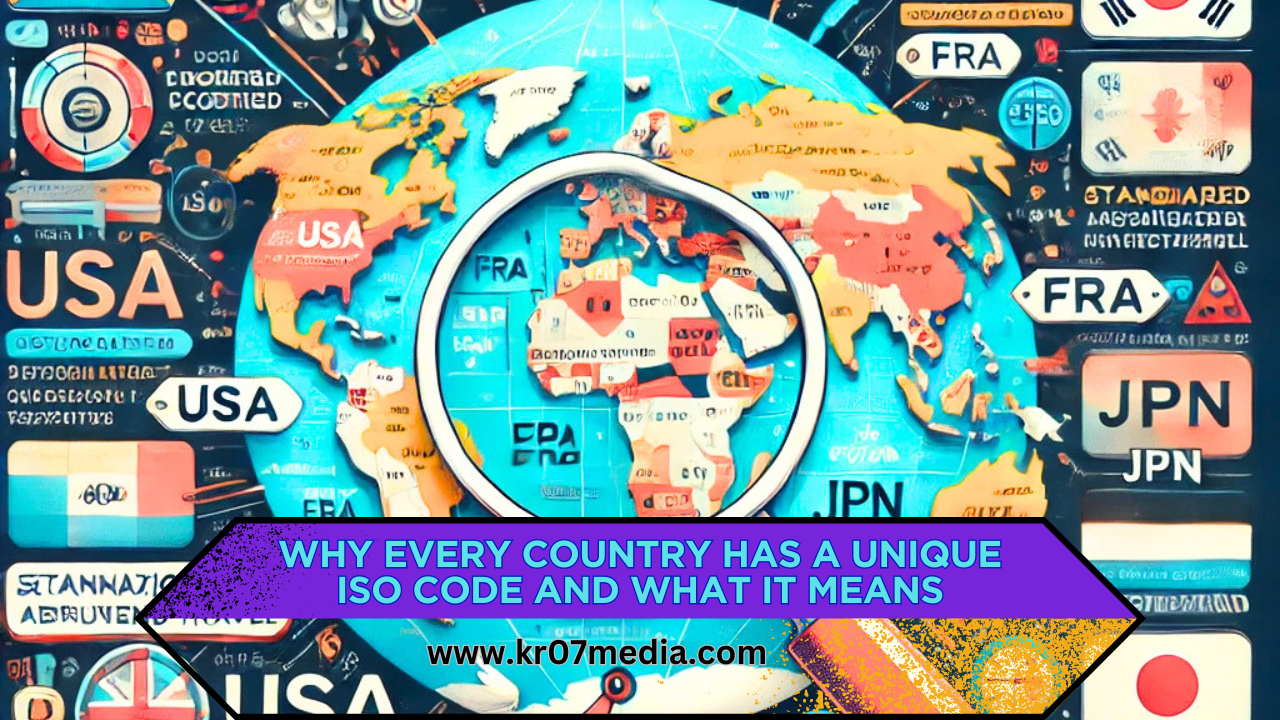Why Every Country Has a Unique ISO Code and What It Means
In today’s globalized world, standardized codes are essential for communication, trade, and governance. One such important standard is the ISO country code, which assigns a unique identifier to each country. These codes, governed by the International Organization for Standardization (ISO), play a crucial role in multiple sectors, including banking, international trade, and transportation. But why does every country have a unique ISO code, and what does it signify? Let’s explore.
Understanding ISO Country Codes
ISO country codes are three-letter (ISO 3166-1 alpha-3) or two-letter (ISO 3166-1 alpha-2) codes that uniquely identify each country. These codes are developed and maintained by the ISO, a global body that sets international standards across various fields. The two-letter codes are commonly used for internet domain extensions (e.g., .us for the United States, .uk for the United Kingdom), while three-letter codes are often used in international organizations and data exchange systems.
Why Are ISO Codes Necessary?
Standardization and Consistency:
ISO codes ensure that every country is represented in a uniform manner, reducing ambiguity in international communications.
Facilitation of Trade and Commerce:
These codes are used in customs declarations, international shipping, and banking transactions, ensuring smooth operations across borders.
Aviation and Travel:
Airlines, travel agencies, and booking systems use ISO codes to streamline ticketing and scheduling processes.
Internet and Technology:
Country-code top-level domains (ccTLDs) rely on ISO codes, making them crucial for the digital identity of nations.
Data Management and Security:
Governments and organizations use these codes to manage international databases and security systems efficiently.
How Are ISO Codes Assigned?
ISO codes are assigned by the ISO 3166 Maintenance Agency, which is responsible for updating the list as new countries emerge or geopolitical changes occur. The agency follows a structured process to ensure that every country has a distinct code that aligns with international recognition. In cases where a country changes its name or political status, the ISO may update or reassign codes accordingly.
Significance of ISO Codes Beyond Identification
Beyond their primary function of identification, ISO country codes serve as a foundation for various legal, economic, and diplomatic activities. They help in structuring international agreements, organizing global events like the Olympics, and maintaining official records in multinational organizations such as the United Nations and the World Bank.
Conclusion
ISO country codes are more than just letters and numbers; they represent a country’s presence in the global ecosystem. Their significance extends from trade and travel to technology and governance, ensuring smooth international interactions. As globalization continues to evolve, these codes will remain an indispensable part of the interconnected world.



